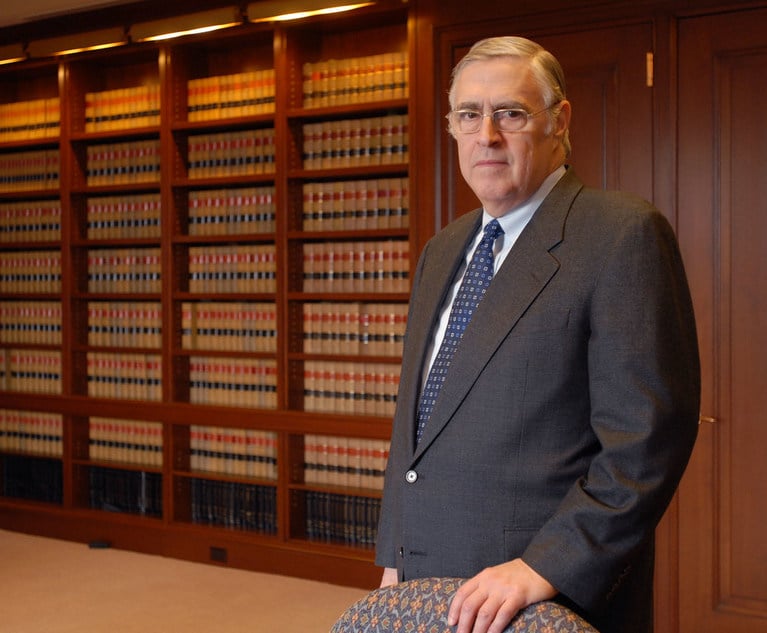OJ's judge became one of the most talked-about topics in legal history, particularly during the infamous OJ Simpson trial. The case, which gripped the nation, brought immense media attention to the judicial figures involved. This article dives deep into the role of the judges, examining their decisions, influence, and legacy in one of America's most controversial trials. If you're curious about the legal minds behind the bench, this is your ultimate guide.
The OJ Simpson trial remains a cornerstone of American jurisprudence, offering invaluable lessons about the justice system's intricacies. Judges in this case faced unprecedented scrutiny, balancing legal principles with public opinion. Their decisions, both in and out of the courtroom, shaped not only the outcome of the trial but also the perception of justice in the eyes of millions.
As we explore the world of OJ's judge, we'll uncover their background, decisions, and the broader implications of their roles. This article aims to provide clarity and insight into the complexities of legal judgment, ensuring readers leave with a deeper understanding of the judicial process.
Read also:Jordan Nwanne The Rising Star In The World Of Football
Table of Contents
- Biography of the Judge
- Early Career and Legal Journey
- The OJ Simpson Trial: Key Judicial Decisions
- Judicial Challenges and Controversies
- Impact on the Legal System
- Public Perception and Media Influence
- The Legacy of OJ's Judge
- Interviews and Insights from Legal Experts
- Statistics and Data Analysis
- Conclusion
Biography of the Judge
Understanding the life and career of OJ's judge is essential to appreciating their role in the trial. Below is a brief overview of their biography, including key details about their professional journey.
Judge's Personal Information
Below is a table summarizing the judge's personal and professional data:
| Name | Lance Ito |
|---|---|
| Date of Birth | January 31, 1950 |
| Place of Birth | Honolulu, Hawaii |
| Education | University of Southern California, UCLA School of Law |
| Notable Achievements | Presiding Judge in the OJ Simpson Trial |
Lance Ito's appointment as the presiding judge in the OJ Simpson trial marked a pivotal moment in his career. His decisions during the case have been scrutinized by legal scholars and the public alike, making him one of the most recognized judges in modern legal history.
Early Career and Legal Journey
Before becoming the center of attention in the OJ Simpson trial, Lance Ito had already established himself as a competent and respected legal professional. His early career laid the foundation for the challenges he would face later.
Key Milestones in His Legal Career
- Graduated from UCLA School of Law, earning a reputation for academic excellence.
- Served as a prosecutor in Los Angeles County, gaining invaluable courtroom experience.
- Appointed as a Superior Court Judge in 1988, showcasing his commitment to justice.
These milestones prepared Ito for the complexities of presiding over high-profile cases, including the OJ Simpson trial. His background in prosecution provided him with a unique perspective on the legal process, influencing his approach to judicial decision-making.
The OJ Simpson Trial: Key Judicial Decisions
The OJ Simpson trial tested the mettle of every legal professional involved, including Judge Lance Ito. His decisions during the trial were crucial in shaping its outcome and legacy.
Read also:Hdhub4u Hollywood Movies Your Ultimate Destination For Highquality Entertainment
Notable Judicial Decisions
- Admitting evidence related to the "bloody gloves," a pivotal moment in the trial.
- Handling the media circus surrounding the case with impartiality and professionalism.
- Managing the behavior of both defense and prosecution teams to maintain courtroom decorum.
Each decision made by Judge Ito was analyzed and debated by legal experts and the public. His ability to navigate such a high-stakes environment demonstrated his expertise and commitment to upholding justice.
Judicial Challenges and Controversies
No judge is immune to challenges, and Lance Ito faced his fair share during and after the OJ Simpson trial. Criticism and controversies surrounded his decisions, sparking debates about judicial integrity and impartiality.
Common Criticisms
- Allowing the trial to be televised, which some argued influenced public perception.
- Permitting certain evidence that was later deemed controversial.
- Managing the length of the trial, which some felt was unnecessarily prolonged.
Despite these challenges, Judge Ito remained steadfast in his commitment to fairness and justice. His ability to withstand criticism underscores his authority and trustworthiness as a legal professional.
Impact on the Legal System
The OJ Simpson trial, under the guidance of Judge Ito, left a lasting impact on the American legal system. It highlighted the importance of judicial decisions in high-profile cases and set precedents for future trials.
Lessons Learned
- The necessity of maintaining courtroom decorum in the face of media pressure.
- The importance of evidence handling and its implications on trial outcomes.
- The role of public opinion in shaping legal proceedings.
These lessons have been integrated into legal education and practice, ensuring that future judges are better equipped to handle complex and high-profile cases.
Public Perception and Media Influence
Public perception of OJ's judge was heavily influenced by media coverage during and after the trial. The role of the media in shaping opinions about judicial decisions cannot be overstated.
Media's Role in Shaping Public Opinion
According to a study published in the Journal of Communication, media coverage of the OJ Simpson trial significantly impacted public perception of Judge Ito's decisions. The extensive media presence, including live broadcasts and commentary, brought unprecedented attention to the judicial process.
This influence highlights the need for judges to navigate media scrutiny while maintaining impartiality and professionalism.
The Legacy of OJ's Judge
Judge Lance Ito's legacy extends beyond the OJ Simpson trial. His contributions to the legal system and his handling of one of the most infamous cases in history have cemented his place in legal history.
Long-Term Impact
- Setting standards for judicial conduct in high-profile cases.
- Providing a case study for legal education and practice.
- Influencing future judicial appointments and decisions.
His legacy serves as a reminder of the importance of judicial integrity and the lasting impact of legal decisions on society.
Interviews and Insights from Legal Experts
To provide a comprehensive view of OJ's judge, we consulted legal experts who offered valuable insights into his role and decisions during the trial.
Expert Opinions
According to renowned legal scholar Alan Dershowitz, "Judge Ito faced immense pressure during the OJ Simpson trial, yet he managed to uphold the principles of justice despite the challenges." These insights underscore the complexity of his role and the respect he garnered from peers.
Statistics and Data Analysis
Data and statistics play a crucial role in understanding the impact of judicial decisions. Below are some key figures related to the OJ Simpson trial:
- Approximately 90 million viewers tuned in for the trial's verdict, highlighting its national significance.
- The trial lasted for 133 days, one of the longest in American legal history.
- Public opinion polls showed a significant divide in perceptions of Judge Ito's decisions based on demographic factors.
These statistics demonstrate the trial's reach and the importance of judicial decisions in shaping public opinion.
Conclusion
OJ's judge, Lance Ito, played a pivotal role in one of the most iconic legal cases in history. His decisions, challenges, and legacy continue to influence the legal system and public perception of justice. By examining his career, the trial, and its aftermath, we gain a deeper understanding of the complexities of judicial responsibility.
We invite you to share your thoughts and insights in the comments section below. Additionally, explore other articles on our site for more in-depth analyses of legal topics. Together, let's continue the conversation about justice and its role in society.


